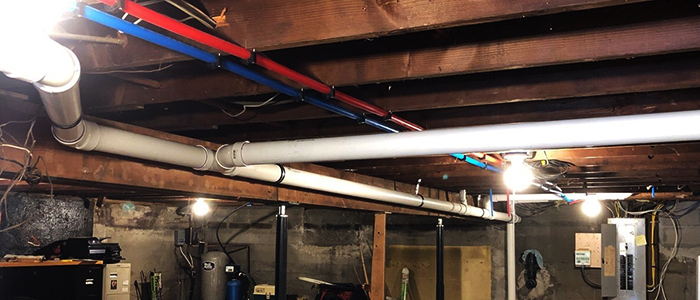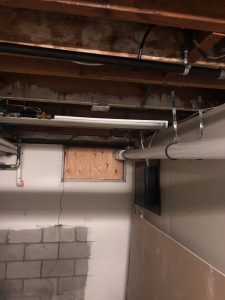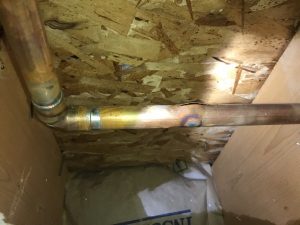Avoiding Heat Emergencies During Deep Freeze

When temperatures reach dangerously cold lows, and we experience a deep freeze (wind chills bringing temperatures well below 0), keeping your home and family warm and safe is a number one priority. Doing this is unfortunately not as simple as cranking the temperature up on your thermostat. In fact, there are some very serious heat emergencies that are more common during a deep freeze. Heat-related emergencies significantly increase when temperatures significantly decrease. Here are some heating mistakes to avoid, helping to prevent heat emergencies during the remainder of this cold front.
- Make sure your furnace filter is clean – Making sure that your filters are clean and in good shape is important for several reasons. While efficiency and air quality are two important reasons, safety is number one. A dirty or old filter has the potential to overheat, especially if your furnace is working overtime during a deep freeze.
 Make sure exterior furnace pipes are clear – Older homes typically have exhaust pipes that lead up the chimney, but newer homes run a higher possibility of having pipes that go through exterior walls, venting through the sill. This is an area where snow can buildup and block these venting pipes. If it is blocked by snow, the system will stall. Additionally, this snow buildup can lead to the trapping of dangerous exhaust fumes (like CO), forcing them back into the home. To ensure that your heating system is working properly and to avoid dangerous heat emergencies associated with blocked vents, be sure to clear them after a storm!
Make sure exterior furnace pipes are clear – Older homes typically have exhaust pipes that lead up the chimney, but newer homes run a higher possibility of having pipes that go through exterior walls, venting through the sill. This is an area where snow can buildup and block these venting pipes. If it is blocked by snow, the system will stall. Additionally, this snow buildup can lead to the trapping of dangerous exhaust fumes (like CO), forcing them back into the home. To ensure that your heating system is working properly and to avoid dangerous heat emergencies associated with blocked vents, be sure to clear them after a storm!- Don’t set thermostat back at night – On normal winter nights, setting your thermostat back at night is typically fine, and a good idea. However, in below zero temperature, it is advised to keep the heat steady through the night.
- Don’t overwork your heating system – Most heating systems are designed to heat efficiently down to 0 degrees (outside). When temperatures fall below zero, your system has a harder time keeping up. Your furnace or boiler is already working overtime since it is on for longer periods and more often, to maintain temperature. So, continuing to increase the temperature on your thermostat can lead to the wearing and breaking down of parts.
 Avoid freezing pipes – A frozen burst pipe is one of those winter heat emergencies you definitely want to avoid. There are several proactive measures you can take to prevent your pipes from freezing during extreme cold like; properly insulating your pipes, running your faucets that are on exterior walls, opening cabinets to allow warm air to hit sink pipes, keeping garage doors closed, etc. Here’s some more information on the best ways to prevent frozen pipes.
Avoid freezing pipes – A frozen burst pipe is one of those winter heat emergencies you definitely want to avoid. There are several proactive measures you can take to prevent your pipes from freezing during extreme cold like; properly insulating your pipes, running your faucets that are on exterior walls, opening cabinets to allow warm air to hit sink pipes, keeping garage doors closed, etc. Here’s some more information on the best ways to prevent frozen pipes.
If you find yourself with no heat or hot water during extreme cold, contact Kulk’s Plumbing & Heating ASAP. Having no heat in these conditions can be extremely dangerous to not only your family and pets, but your home itself. Being proactive before winter, and implementing preventative measures during cold temperatures can go a long way in preventing these heat emergencies! Water heater, boiler and furnace maintenance are so important in ensuring your heating system is working efficiently, prior to winter. Wondering why your furnace is blowing cold air? Visit our blog for more on this.
If you find yourself dealing with any heat emergencies or plumbing emergency situations, give us a call! We offer 24 hour plumber and heating emergency services!

